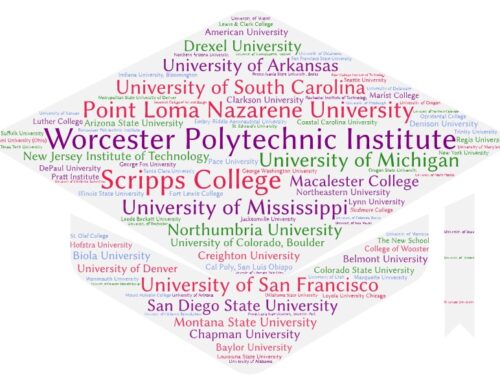People often think of April 1 as April Fool’s Day, but for high school seniors, it’s an important date for another reason: April 1 is the deadline for colleges to notify students of their admissions decisions (at least if the college requires students to make a deposit by May 1). So, if you haven’t already heard from all of the colleges to which you applied, you likely will hear soon.
For many students, college acceptances also include financial aid offers. If you were admitted to more than one school, it’s important to understand how to read and compare financial aid offers so that you can make a well-informed decision about which is best.
In determining a student’s need-based financial aid award, colleges use your Expected Family Contribution (EFC), which is the amount your family is expected to pay for your college education. This number is based on the information students and parents provided in the financial aid applications they submitted (FAFSA, CSS Profile, and/or institutional forms).
Not all colleges meet 100% of demonstrated need, which means that a financial aid award may be less than your EFC. Hopefully, if financial aid was a major factor in your college search, you did your research and only applied to colleges that meet a high amount of demonstrated need. (For students or parents of students who haven’t yet applied to college, here is a list of colleges that meet at least 93% of demonstrated need.)
Need-based financial aid packages often include more than one type of aid. Gift aid (typically in the form of scholarships and grants), is money that doesn’t have to be paid back, so the more gift aid you’re offered, the better. Loan aid is money that you have to repay. There are two types of loans you can get from the federal government: subsidized loans, which don’t start accruing interest until after the student graduates from college; and unsubsidized loans, which start accruing interest immediately. Although subsidized loans are only offered to students with demonstrated financial need, both types of loans have a six-month grace period after graduation before you have to start paying them off.
Some financial aid offers also include work-study, which is an on-campus job for which the student receives a paycheck and is expected to use that money toward his or her educational expenses. (Note that the student is the one who gets paid, not the parent.)
As you evaluate a financial aid offer, be sure to look at which parts of it are renewable. While you will have to reapply for need-based aid every year, many scholarships require that students maintain a certain GPA in order to renew them.
Also, keep in mind that you don’t have to accept every part of a financial aid package. You might choose to decline a loan but accept a grant. However, you need to let the college know what you are going to accept and what you’re going to decline, and you must do so by the stated deadline.
If you’re considering whether to take out loans, it’s important to think about your intended career path, expected salary, and how long it will take to pay off the loan. For example, a student who plans to be an engineer will most likely be able to pay off a loan more quickly than a student who intends to be a teacher. The average student loan debt for the college class of 2017 was $39,243, and that number rises every year. Although it may be difficult for teens to think so far in the future, having tens of thousands of dollars in student loans can affect your ability to buy a house, save for retirement, and/or save for your own kids’ college education.
Deciphering and comparing financial aid offers can be tricky. Luckily, there are some free resources that can help you evaluate these offers:
- College Board’s Compare Your Aid Awards Tool allows you to compare up to four financial aid offers.
- The National Association of Student Financial Aid Administrators’ Award Letter Comparison Worksheet has space to enter information from up to three financial aid awards.
If you are confused or have questions about your financial aid package, you shouldn’t hesitate to contact the college’s financial aid office. It’s also important to contact that office if your financial situation has changed since you applied for aid, as some colleges will allow students to appeal a financial aid award under such circumstances.






